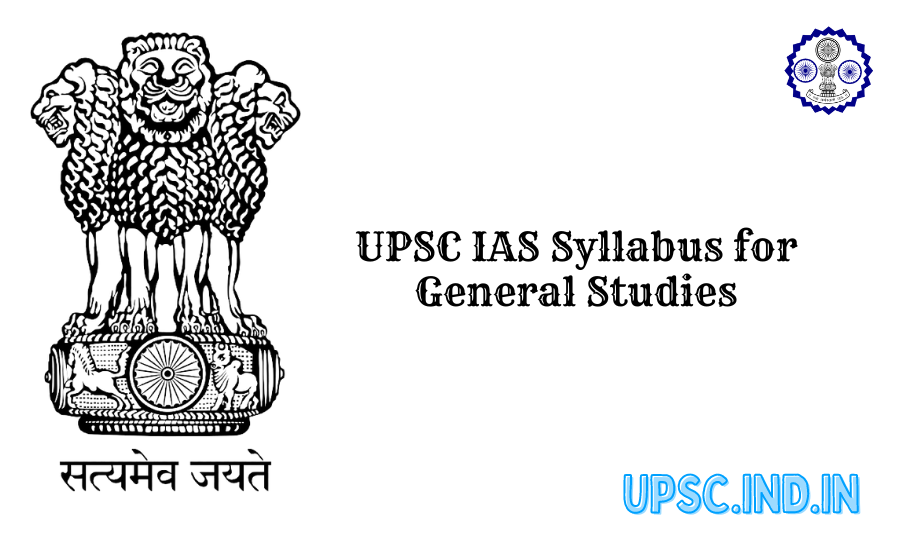UPSC IAS Syllabus for General Studies |
UPSC IAS Syllabus for General Studies
The Union Public Service Commission (UPSC) conducts one of the most prestigious and competitive civil service examinations in India – the Indian Administrative Service (IAS) examination. Aspiring to become an IAS officer is a dream for many, but the journey begins with a thorough understanding of the UPSC IAS syllabus for General Studies. This article aims to break down the General Studies syllabus, providing aspiring candidates with a clear roadmap for their preparation.
Understanding the IAS Examination
Before delving into the specifics of the General Studies syllabus, it’s essential to understand the structure of the IAS examination. The IAS examination consists of three stages:
- Preliminary Examination (Prelims): This stage comprises two objective papers: General Studies Paper-I and General Studies Paper-II (CSAT – Civil Services Aptitude Test). Only candidates who pass the Prelims can move on to the next stage.
- Main Examination (Mains): The Mains examination consists of nine papers, of which seven are merit-based. Among these seven, four papers are dedicated to General Studies, making it a crucial component of the examination.
- Personality Test (Interview): Candidates who qualify the Mains are called for a Personality Test (Interview) to assess their overall suitability for a career in the civil services.
General Studies Syllabus
The General Studies syllabus for both the Prelims and Mains examinations is vast and diverse. It is designed to test a candidate’s knowledge and understanding of various subjects, including but not limited to:
- History: Ancient, Medieval, and Modern Indian history, world history, and the Indian national movement.
- Geography: Physical, human, and economic geography of India and the world.
- Polity: Indian Constitution, governance, political system, and public policy.
- Economy: Indian economy, economic development, planning, and budgeting.
- Science and Technology: General principles, developments, and applications of science and technology.
- Environment and Ecology: Biodiversity, climate change, conservation, and environmental impact assessment.
- Culture: Indian art, literature, architecture, and heritage.
- Social Issues: Poverty, education, health, gender, and other relevant social issues.
- Current Affairs: National and international events, government policies, and contemporary issues.
Tips for Effective Preparation
- Comprehensive Study Material: Invest in quality books, online resources, and coaching materials that cover the entire General Studies syllabus.
- Effective Time Management: Create a study schedule that allocates sufficient time to each subject, giving priority to your weaker areas.
- Regular Practice: Solve previous years’ question papers and take mock tests to gauge your preparedness.
- Current Affairs Update: Stay updated with current events through newspapers, magazines, and reliable news websites.
- Revision: Periodically revise what you’ve studied to reinforce your knowledge.
- Essay and Answer Writing: Practice essay and answer writing to improve your writing skills, a critical aspect of the Mains examination.
TO MORE DETAIL – CHECK THIS
FOLLOW US TO MORE DETAIL
Conclusion
The UPSC IAS examination is undoubtedly challenging, but a clear understanding of the General Studies syllabus is the first step towards success. By breaking down the syllabus into manageable sections, adopting effective study strategies, and staying committed to consistent preparation, aspiring IAS officers can navigate this formidable examination with confidence. Remember that diligence, determination, and a passion for public service are essential qualities that can help you achieve your dream of becoming an IAS officer.
FAQ – UPSC IAS Syllabus for General Studies
